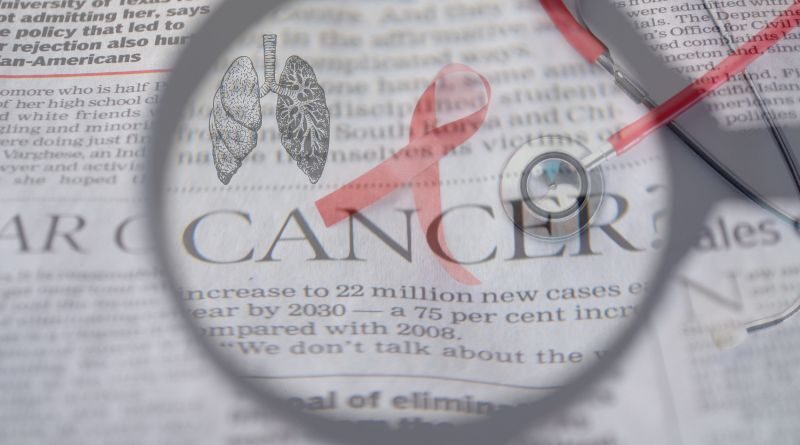Cancer and Cancer Survivors: What You Need to Know
Cancer may seem like something out of a science fiction movie and there is no chance of survivors, but according to the National Cancer Institute, it affects more than 12 million people worldwide and kills 8 million people every year. However, cancer patients aren’t necessarily doomed to death or an unhappy life; many cancer survivors make full recoveries and go on to live normal, healthy lives in which they can enjoy loved ones and fun pastimes again. Here’s what you need to know about cancer and cancer survivors.
What Is Cancer?
There are many different cancers and they affect people in different ways. To understand more about cancer, it’s important to first get an understanding of what a cell is and how cells divide. A cell is made up of a nucleus with DNA which contains our genes and the cytoplasm which includes enzymes that allow them to do their jobs.
When a cell divides or splits into two cells, sometimes the DNA is replicated incorrectly or becomes damaged by sunlight for example, or the process of dividing doesn’t go as planned and one or both of the cells are abnormal. These mistakes can lead to many different forms of cancer.
Who can be victimized by cancer
Whether you are at risk for cancer or not, it is important to know what cancer is and how it can affect you. Here are some basics about cancer that we hope will give you more insight into what cancer is, who it can victimize, and why prevention is important.
- Cancer comes from uncontrolled cell growth in a part of the body. The type of cancer depends on which cells grow uncontrolled (lung cancers grow in the lungs, brain cancers grow in the brain).
- Anyone can be victimized by cancer.
- Symptoms of late-stage cancers include weight loss and painless bleeding, fatigue, difficulty eating/swallowing, and jaundice.
- Cancer treatments usually involve chemotherapy, radiation therapy, or surgery. They often have many side effects including hair loss, nausea, vomiting, and fatigue.
- There are also drugs that can reduce side effects but they do not work for everyone and may cause other problems such as increased vulnerability to infection or diabetes. It’s important to weigh the benefits of treatment against their potential risks before deciding what’s best for you.
Survivors: People with cancer can be called survivors if they are living five years after their diagnosis with no evidence of disease progression.
5 Ways to Prevent Breast Cancer
Breast cancer is the most common cancer among women. But you can do something about it by following these 5 tips for prevention.
- Go for a breast exam every year with your doctor and
- Stay active by eating healthy,
- avoiding being overweight or obese,
- make sure you get adequate sleep and exercise, and
- Use sunscreen every day in order to limit exposure to harmful UV rays from the sun.
Cancer survivors? Well, they’re people who have had cancer but are no longer battling it because they either beat it or underwent treatment that was successful.
7 Myths about Ductal Carcinoma in Situ (D.C.I.S.) or Pre-Cancerous Breast Lesions
Ductal Carcinoma in Situ (D.C.I.S.) or precancerous breast lesions can be a little bit scary for many women, but the reality is that for most women who have them, cancer never develops and their D.C.I.S./pre-cancerous lesion goes away on its own without any treatment required.
It’s important to take these types of lumps seriously so you can get a proper evaluation from your doctor and determine if there’s a risk of developing cancer in the future based on your individual medical history and what types of ductal carcinoma in situ (D.C.I) cells were found on your biopsy.
Risk Factors for Prostate Cancer
- As your age, your risk of developing prostate cancer increases.
- A family history of prostate cancer can also increase your risk.
- Your race and ethnicity may also affect your risk, with African Americans having a 1 in 7 chance and Asians being at a lower risk.
- Eating unhealthy foods, such as red meat and saturated fats, could contribute to the development of prostate cancer.
Other things that might cause an increased risk include smoking cigarettes or drinking alcohol excessively. These behaviors will not increase your risks for every type of cancer but may put you at a higher risk for prostate cancer specifically.
Side Effects of Chemotherapy Treatment for Colon, Liver, Ovarian, Pancreatic, and Stomach Cancers
Chemotherapy treatment may cause various side effects that vary depending on the type of cancer and where it is in the body. Side effects of chemotherapy treatment can include hair loss, nausea, mouth sores, fatigue, and extreme tiredness. Chemotherapy treatment can also cause lung damage which could lead to a decrease in lung function or shortness of breath.
How Does Chemo Work on a cancer patient?
Chemotherapy is a type of cancer treatment that uses chemicals (chemotherapeutic agents) to destroy cancer cells. Chemotherapy drugs are called alkylating agents, anthracyclines, antibiotics, asparaginase, bleomycin, carboplatin, chlorambucil, cisplatin and cyclophosphamide. The most common chemotherapeutic treatments are composed of a combination of two or more drugs.
These combinations help combat drug resistance or work better together than when administered alone. If you’re not sure which chemotherapy agent your doctor has recommended for you – the list is long – ask her or him about your risk factors for the type of cancer you have and their recommendations for the appropriate chemotherapy regimen for those risk factors.
Common Questions on Radiation Therapy for Cancer Patients
How does radiation therapy work?
Radiation is carefully directed at the site of cancer cells. The cancer cells are killed, which eventually reduces the tumor size and shrinks it so that surgery or another type of treatment can be used.
When should I start radiation therapy?
For early-stage cancers in which the margins of your incision are clear and there is no evidence of metastasis (cancer spreading), radiation therapy can be given immediately after surgery, even before leaving the hospital. Usually, an oncologist will do a CT scan after surgery to see if you need radiation therapy. For late-stage cancers, it is common for people with cancer near vital organs or those who have metastasis to have radiation after chemotherapy or other treatments.
Who should not get radiation?
People who have certain types of brain tumors, spinal cord tumors, some types of head and neck tumors, sarcomas (a type of cancer that starts in connective tissue), any cancer that has spread outside the area where it started, lymphomas (a type of blood cell cancer) usually do not receive radiation therapy because these conditions can make them more sensitive to the effects of radiation.
What about side effects?
Common side effects from radiation include fatigue, nausea, vomiting, and diarrhea. These symptoms usually go away after a few weeks following treatment but they may last longer depending on how much time was spent being irradiated by the machine.
7 Natural Remedies for Healing Chronic Inflammation After Being Diagnosed With Lyme Disease And/Or Infectious Diseases
Every color of the rainbow is rich in vitamins and minerals that provide powerful benefits. According to Dr. Lisa Ray, Every color of the rainbow reflects a different set of health benefits. The deep reds, oranges, and yellows promote immunity. Berries and other dark fruits can help prevent heart disease. Green vegetables are your best source of many cancer-fighting compounds. Lighter greens are rich in calcium and vitamin K which reduces high blood pressure and helps avoid osteoporosis.
The Benefits of Eating the Rainbow As A Guide For Foods That Naturally Fight Bacteria And Viruses In Your Body
We are part of a new age when we are completely surrounded by beauty and living, changing landscapes that require us to be more observant. Our sense of taste is a biological mechanism from ancient times that warns us when something is poisonous or spoiled.
But rather than using it solely for this, we can use our senses of sight, sound, smell, and taste as guides for foods that nourish our bodies and will always benefit us in the long run if eaten in moderation. I like to think of it as eating the rainbow one bite at a time!
- Eat seasonally fresh vegetables when they’re in season
- Vegetables offer essential nutrients, fiber, and antioxidants that keep your gut healthy! Remember to eat leafy greens (kale, spinach) because they contain Vitamin K which helps with blood clotting.
- It’s important to eat different colors of fruits and vegetables daily because each color offers different nutritional benefits as purple cabbage contains sulfur which helps detoxify your liver while oranges contain vitamin C which protects against infections!
Healthy fats: these should come from plant sources such as avocados, nuts, seeds, and olive oil; these fats provide essential fatty acids for brain function and metabolism regulation.
For more updates regarding Health & Fitness, keep browsing Blogs Gurru.



